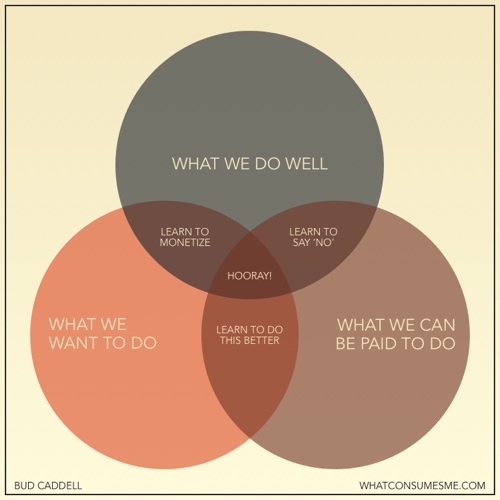Arjen Vrielink and I write a monthly series titled: Parallax. We both agree on a title for the post and on some other arbitrary restrictions to induce our creative process.
For this post we agreed to write an essay of no more than 500 words.
You can read Arjen’s post with the same title here.
I am convinced that large multinational corporations are relics of a bygone era. And yes, I am happily working for one.
Advances in technology have made it incredibly easy to organise people into productive working groups on short notice. Large corporations owe their existence to the fact that they were the most efficient way to organise big groups of people and allowing them to facilitate complex processes. Nowadays the overhead that these organisations demand are not defensible anymore. Many of the functions inside these businesses will be done by much smaller organisations which “automagically” spring into existence wherever there is demand. The organisation itself will slim down to its core competencies.
This imminent change will have effects on the labour market and how people will plan their careers. It will allow for many more people to be an entrepreneur: being hired for their expertise and working in ever changing groups on a diverse set of knowledge intensive projects. For these people the distinction between their professional life and their private life will increasingly blur. Some work will be done for a wage, other work for a fee, some will done as charity and finally some will be done to study.
Increasingly I see this happening in my own personal career. I am a blended learning adviser at Shell (wage), occasionally I am hired by other organisations to consult around educational technology (fee), I spend a fair amount of time supporting people in their use of Moodle and in helping to make it better (charity) and do a lot of very conscious reading (and writing) to learn more about the things I am interested in, increasing my value on the job market (study). These things aren’t done between nine and five only and continuously change in their prominence.
A couple of weeks ago I encountered Bud Caddell’s wonderful Venn diagram (via Lifehacker):

It succinctly shows what is important in life: finding a way of getting paid for what you are good at and want to do. The model provides heuristics for whenever one of the three elements is missing (e.g. “Learn to say ‘No'”). So how do you make sure that you will stay in the “Hooray!” zone during the majority of your career?
I think you have to do the following:
- Be 100% transparent. Only if you let people know what it is that you do will you build the trust necessary for them to engage with you.
- Work on enlarging your network. Because, increasingly, this is where your knowledge will reside.
- Try to always give more than you get.
- Invest in your education. The investment should be in time, not in university fees.
- Make career choices that increase your opportunities and give you more flexibility.
- Only be loyal to companies that give you a challenging environment in which you can develop yourself.
- And finally, in all of the above, make proper use of technology.
If you heed to this advice the “Hooray!” should come naturally.
Ha, great first post. Think this can work out to be more than the sum of it’s parts